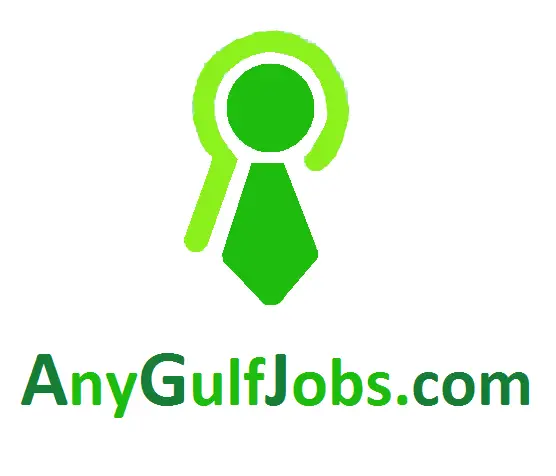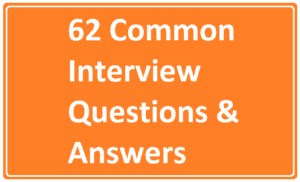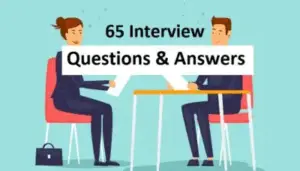When the interviewer asks you “Any Questions?”
“At the end of the interview, you are asked if you have any questions to ask? If you say “no questions”, you are saying “I have no idea” to the other party, but you will waste the chance to turn the hero in the end! Therefore, the author of this article divides it into four angles, and gathers the example sentences in the relevant articles, puts forward several interview questions and asks skills and explains them for your reference!”
4 Quick Guide to Interview Questioning Tips
- Welfare System
- Future Development
- Get to know each other
- give me indicators
In the process of counseling job hunting, counselors often ask me, “How do I answer when I am asked if I have any questions?”
I believe that many people also have such experience. At the end of the interview, the interviewer will say, “Are there any questions?” Every time at this time, if your head is blank, or you want to speak but you are not sure, it will be a bonus point or a deduction. point. In fact, from the interviewer’s point of view, the purpose of asking this question is mainly to get to know you better, understand your personality traits, the work value you care about, and even your self-understanding through your questions.
Therefore, if you say “no problem”, you are saying “I have no idea” to the other party, but it is a waste of an extension! Therefore, this time, I divided it into four angles, and assembled the example sentences in the relevant articles, put forward a few interview questions and skills, and explained them for your reference!
Also Read:- Tips for Being Impressive in a Job Interview
1. Welfare System
This should be the most frequently asked question, but honestly, this type of question doesn’t give many points. And usually, the more detailed the question is, the more difficult it will give people the impression. However, that doesn’t mean you shouldn’t ask, but first, ask yourself if this is important to you. Then who should I ask? How to ask?
First, is this important to you? If the reason for leaving the previous job was excessive working hours and frequent overtime problems, then going to a job with excessive working hours and overtime needs is definitely not what you want. I always emphasize that “transferring is not about jumping from one fire pit to another”, so knowing what is important to you can avoid repeating mistakes. So, if this is important to you and is the key to your decision on a job, be sure to ask, be clear, and be clear.
So, who should I ask about working hours, wages and benefits?
To put it simply, the salary and benefits are asked by personnel, and the promotion of working hours is asked by the hiring supervisor. Salary and benefits include: the salary structure, bonus system, payment time, vacation and other employee benefits; usually such details are when preparing to run the hiring process. Working hours and promotion opportunities are, of course, the most accurate way to ask your immediate supervisor. After all, it is his team, and he controls the work status and performance appraisal of members. If you are applying for a business unit, you can also ask the hiring supervisor about bonus issues.
Finally, how can I ask without being rude and abrupt?
There is a method called ” self-disclosure “, which I think is a very useful way of communication. When you’re not sure if it’s appropriate to ask the question yourself, reveal yourself before asking the interview questions .
- Example 1: My current annual salary includes three bonuses, car subsidy, a fixed two-month year-end, and a quarterly performance bonus, plus overtime pay. So, would like to know what the salary structure of your company includes?
- Example 2: My past work unit used to work overtime a lot, and it was almost normal to work overtime until ten o’clock. It was not conducive to family management, but I understand that work is inevitable, so I would like to know the working hours of my colleagues in the current work unit and the frequency of overtime work. ?
- Example 3: My current job is not a management position, but because of stable performance, my supervisor will bring new people to me until they can start independently; therefore, I always hope to have the opportunity to challenge the management position, and I want to know whether this position will be promoted in the future Space? How long will it take or other requirements?
Have you found that “self-disclosure” is very useful!
Also Read:- Why am I not getting any interview calls

2. Future Development
In a growing industry, organization or position, this kind of question will definitely add a lot of points, otherwise, it will greatly deduct points. Why is there a big deduction? Because the key is “whether it is a growing industry, organization or position”. Not all jobs need such “Aggressive” or “Ambitious”, especially in traditional industries, organizations or positions with stable, small changes and high repetition, supervisors may not be able to answer and do not want to answer such questions. Therefore, this kind of question is not suitable for all vacancies, and you must first look at your own occupational suitability and job requirements.
Sample interview questions:
- “My position, what role do I play at different stages of the company? What are the short-, medium- and long-term tasks?”
- “What kind of changes do you hope my joining will bring to the department or company? Is it related to the company’s growth goals?”
- “Want to ask what challenges are typically encountered by past practitioners in this position?”
To put it simply, these types of questions are suitable for “core business positions”, such as R&D engineers and product managers of technology companies, marketing planning of advertising and marketing companies, project managers of fundraising platforms, etc. Especially when meeting the founder, it is more suitable for this kind of question.
Good questions need to be “asked on the right occasion” to have positive effects!
Also Read:- Interview Skills: Interview Questions and Answers for Junior Accountants
3. Get to know each other
Regarding interview questioning skills, some people also like to ask internal information to deepen their impression by understanding the organization or the supervisor himself. But in addition to leaving a good impression, the interview is more important to collect information so as to further evaluate whether it is suitable. Therefore, the purpose of the question is very important. Before asking a question, think about your purpose!
Purpose of interview questions :
“Can you describe your most impressive colleague in this department?”
If the answer is positive, you can see the qualities your supervisor appreciates; conversely, you can see the qualities your supervisor minds or doesn’t like.
“Do you like this company? Why?”
Looking at the other party’s reaction, you can observe whether the hiring supervisor really agrees or fakes it; you can also evaluate whether you want to join the team.
“How did this vacancy come about?”
Whether it is an existing job gap or an expanded business content, you can further clarify the job position and understand the supervisor’s expectations for the job.
“Is it convenient to know your contact information?”
Not all hiring supervisors will introduce themselves to the business card at the beginning. Of course, being proactive can leave a good impression, but you will need to explain later, such as “Whether I can be admitted or not, I hope to be able to keep up with the seniors who inspired me. Contact”, or “I would like to add some information to you about the plans and goals proposed today”, this is considered complete.
“Excuse me, when are you expected to take up this position?”
If you want to show enthusiasm and be able to arrive at the time expected by the other party, please continue to express that if you are accepted, you will be able to work at this time. time available for employment.
A good interview is based on genuine “mutual evaluation”, not one-sided, deliberate performance.
Also Read:- 65 Interview Questions with Answers for Dubai – UAE
4. Give me advice
Humility is a virtue, and asking the other person for advice is also a way to make your future better. Every interview is the accumulation of experience, so these kinds of questions are not necessarily for the current job, but to make oneself better. Listen to what kind of advice the other person gives you, and learn from each other!
Interview question example:
- “If I am fortunate enough to be admitted, what can I do to prepare and enrich myself before I start my career?”
- “If you fail to enter your company in the end, what is the biggest factor?” (No push)
- “What do you think I need to strengthen?” (No push)
Personally, I only recommend ” If I am lucky enough to be admitted, what can I do to prepare and enrich myself? ” After all, people still like the positive and hate the negative. Therefore, no matter how the previous performance was, finally end with a positive question, and then send a thank you letter after going back to supplement the information that was not mentioned in the interview and deepen the positive impression. That is at least 80 points! Provided, of course, that you want to fight for the job.
“Positive” can make a good impression, but only if you really want to join.
Also Read:- Top 15 Interview Questions with Answers in Qatar
In conclusion:
There are no absolute good questions. Only by clarifying the purpose of your job search can you ask the key questions that suit you. If you don’t know what to ask after reading it, the following eight interview question skills Combo recommends to you:
- If you are still employed, and you are not in a hurry to change to the next job, you can ask: Welfare system + Knowing each other
- Have left and are in a hurry to find the next job, be sure to be positive: give me advice
- During multiple interviews, more information should be collected to make rational judgments: welfare system + future development
- Emphasis on promotion and development and compensation and benefits: welfare system + future development
- Pay attention to the working environment and atmosphere: get to know each other
- Cross-field job search shows positive: get to know each other + give me advice
- Necessary for interviews at startups: future development + advice
- High Stability Traditional Industry: Welfare System + Give Me Advice
- The goldfish brain can’t remember so much, so use ” If I am lucky enough to be admitted, what can I do to prepare and enrich myself before I get to the job, so that I can get started immediately after I get on the job? ” + Thank you letter






























